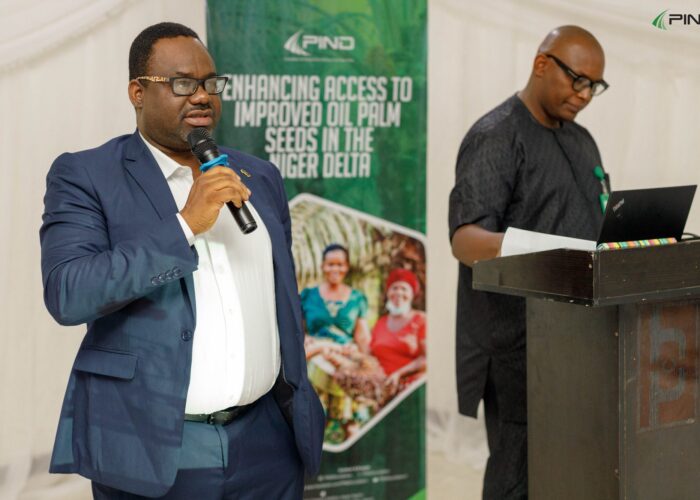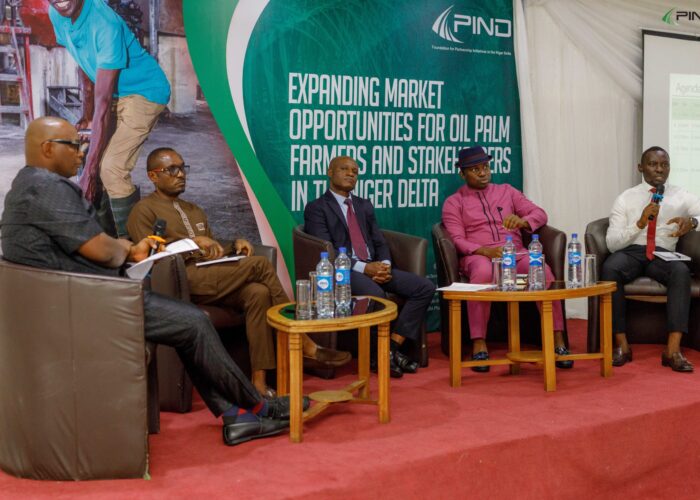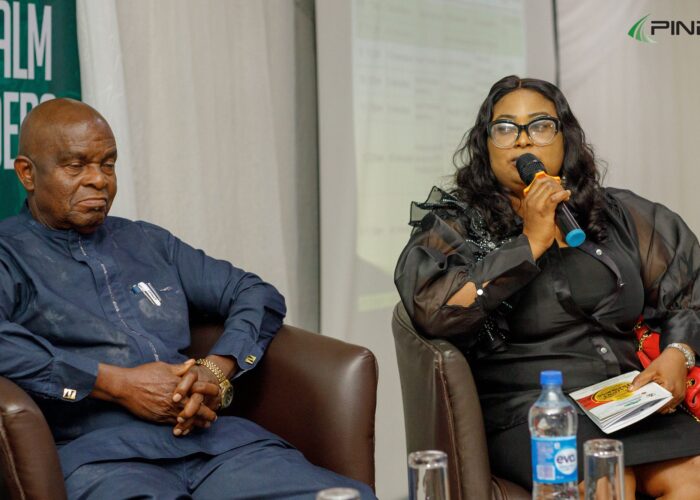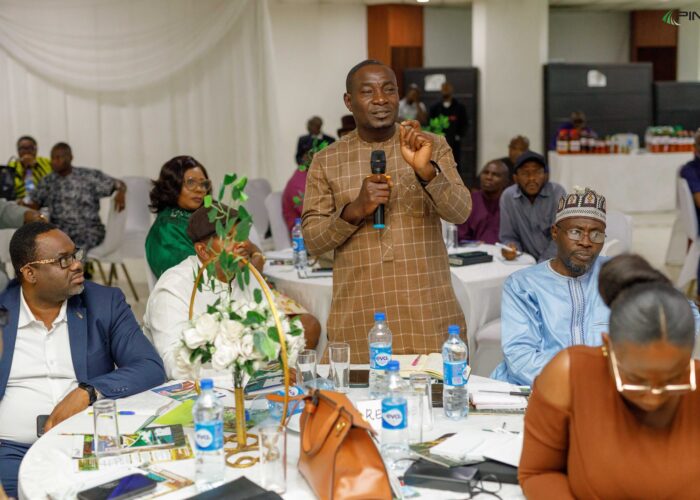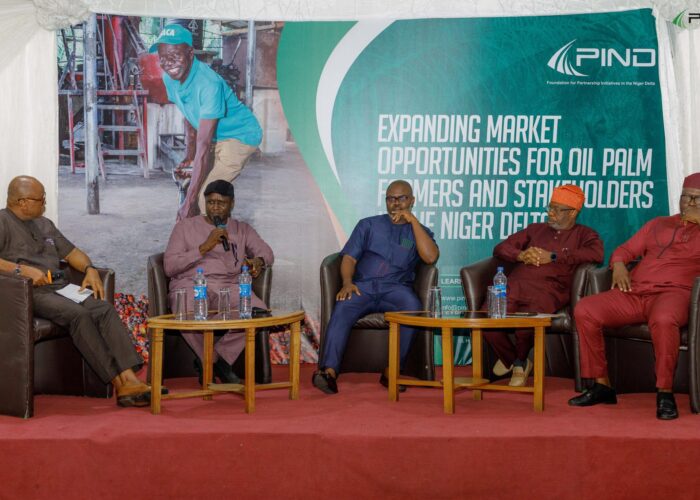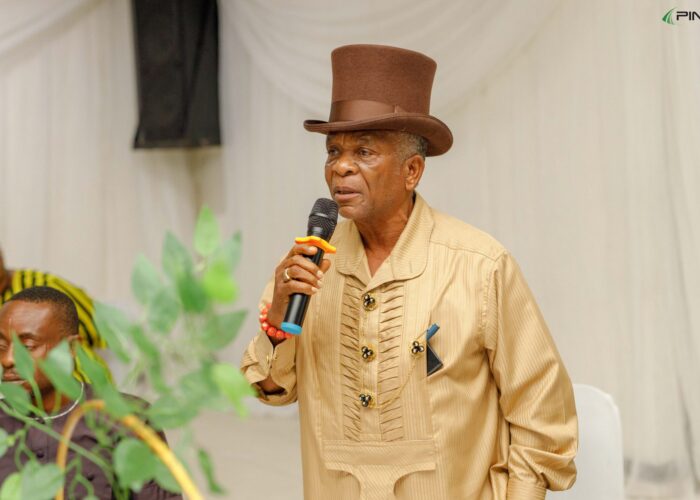The Foundation for Partnership Initiatives in the Niger Delta (PIND) recently hosted a high-level Oil Palm Industry Stakeholders Convening, designed to increase awareness and demand for improved oil palm seeds throughout the Niger Delta. This event brought together more than 80 stakeholders from across the oil palm value chain, including farmers, seed producers, government officials, and financial institutions, with the aim of identifying strategies to enhance productivity and profitability in the oil palm sector.
The convening provided an essential platform for participants to discuss the significant challenges facing the oil palm industry, particularly the adverse impact of low-quality seeds, which has led to reduced yields and profitability for smallholder farmers. The event highlighted the crucial role that certified, high-yield, and pest-resistant seeds play in promoting both the sustainability and economic growth of the sector.
Speaking on behalf of Tunji Idowu, Executive Director of PIND, Misan Edema-Sillo, Economic Development Manager at PIND, commented, “The oil palm industry is a vital part of the Niger Delta’s agricultural economy, and the adoption of improved seeds is key to unlocking its full potential. By bringing together diverse stakeholders, we are laying the foundation for a more productive and sustainable oil palm sector that benefits smallholder farmers and the broader economy.”
Key Highlights from the Convening
- Showcasing PIND’s Development Model: PIND presented its decade-long efforts to stimulate economic growth in the oil palm sector. The organization shared how it addresses market and productivity constraints through strategic partnerships with private nursery operators and seed producers.
- Peer Learning Sessions: Government representatives learned from Edo State’s ESOPP project, about unlocking 50,000 hectares of land for oil palm cultivation, and from Cross River’s successful initiative to plant 3.5 million seedlings, showcasing state-level efforts to strengthen the oil palm industry.
Panel Discussions on Access to Finance and Markets: Experts from the Bank of Industry, Central Bank of Nigeria, NIRSAL, and other institutions discussed financing options for farmers. Representatives from OPGAN and the Nigerian Export Promotion Council also focused on improving access to international markets for oil palm products, making them more competitive globally.
In addition to presentations and discussions, the convening featured an exhibition where seed producers, nursery operators, and other service providers showcased their products, fostering networking opportunities and potential partnerships within the industry.
Moving Forward: Building a Sustainable Future for Oil Palm
The outcomes of the convening are expected to drive increased awareness of the benefits of improved seeds, with advocacy and partnerships enhancing demand. Concrete action plans were established to support stakeholders in promoting the adoption of improved seeds across their respective states and networks. The event underscored the importance of collaborative efforts to address barriers in seed accessibility, affordability, and distribution, setting the stage for a more productive and sustainable oil palm sector in the Niger Delta.

